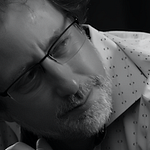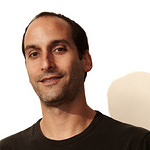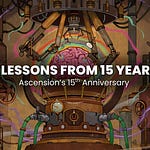About Michael Gnade
Michael Gnade is the founder and lead designer at Rock Manor Games. He started his career in games with Indie Game Magazine, writing and reporting about the newest games from independent creators. Inspired by Ascension, Michael developed Brass Empire, which he created on Kickstarter. Michael Gnade put together one of the more comprehensive looks at Kickstarter metrics out there; if you’re interested, you can check that out here. Otherwise, grab your notebook; there’s some awesome advice on this one!
Show Notes:
“When you make something and it keeps exciting you, I think that’s the evidence that it’s something worth pursuing.” (10:00)
One lesson that I’ve always insisted on is writing notes. Keep track of the games you start building and never finish, of mechanics you come up with and don’t use. In time, you’ll find a place for these in a game that is super exciting to you. Michael and I go into detail about this point and how it affects our game designs.
“The biggest mistake I think young designers make is this idea that they’ve got to keep their ideas secret because it’s so important and so good that they’re scared to share it with anyone.” (12:00)
Michael discusses how important the process of iteration is and how the key to good design is sharing your idea, testing it, and failing faster. This point can’t be made enough: game design is about iteration and testing. We continue on to talk about developing and finding communities to test your games.
“Throughout the process, there are highs and lows, but I never lost the excitement for the theme.” (22:10)
Michael tells us that during the development of Maximum Apocalypse, he’d physically thrown out two prototypes. Tossing out prototypes is common in game design but always painful. Here, we discuss what keeps Michael going as he continues to iterate and make hard choices about a game he was deeply passionate about.
“Obviously, you can launch a Kickstarter and do everything digitally and never show up in person, but I think in this day and age it’s more and more important to be there in person, show yourself off, and make those connections.” (30:00)
Continuing on with our discussions about communities and playtests we talk about Kickstarters and different ways to get your first one off the ground: what to expect, how to show it off, and where to go to get it on people’s radars. We also talk about how to engage an audience using different marketing tools for your Kickstarter. It’s a great series of lessons for up-and-coming designers and designers new to Kickstarter.
I want to stress that this section is particularly valuable because Michael has collected some of the most useful data I’ve found so far on Kickstarter marketing. You can see the data here.
“If you don’t have a book of game ideas, you’re not thinking of game ideas every day, and you’re not thinking about long-tail stuff–there’s really no reason to Kickstart it yourself.” (56:40)
We continue to go into detail about Kickstarting games, moving on to talking about whether you should Kickstart a game and become your own publisher, or find someone to publish your game. Kickstarting means controlling a lot of aspects of game creation from design to distribution, but may not be the right step for everyone.
“The reason you don’t have any money is because getting a game to the point you’ve already gotten it to probably cost you about ten-thousand bucks.” (1:00:00)
In the final segment of this episode, we dive into the complex, mysterious, and expensive marketing world. He mentions that getting a game to the point where it’s got enough art to do well on Kickstarter is expensive before you even get to the marketing. Michael details different methods for honing in on ads that will work for your campaign, where those ads will show up, and how to get worthwhile data.












